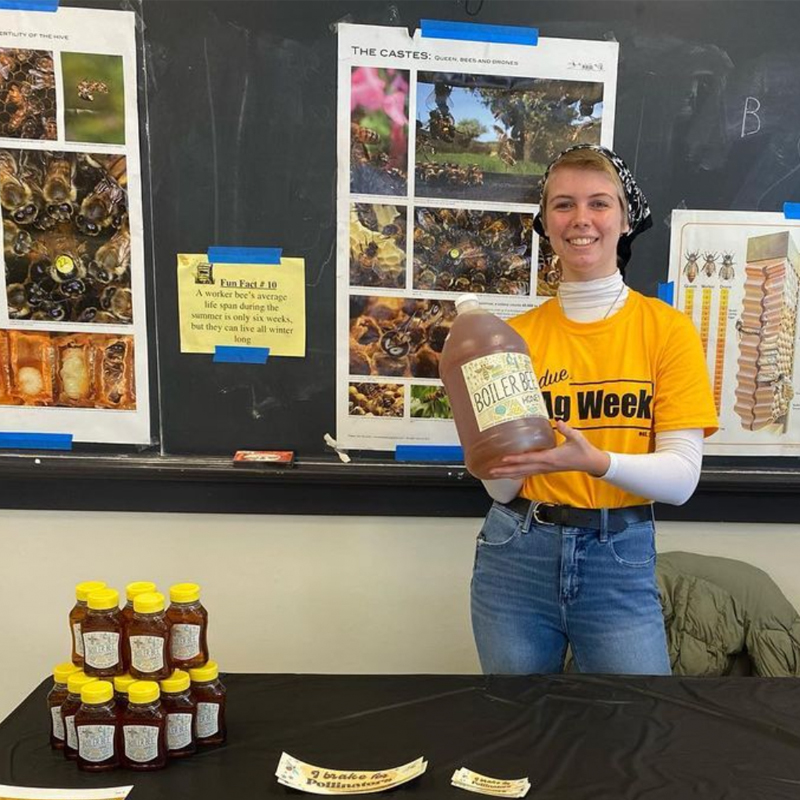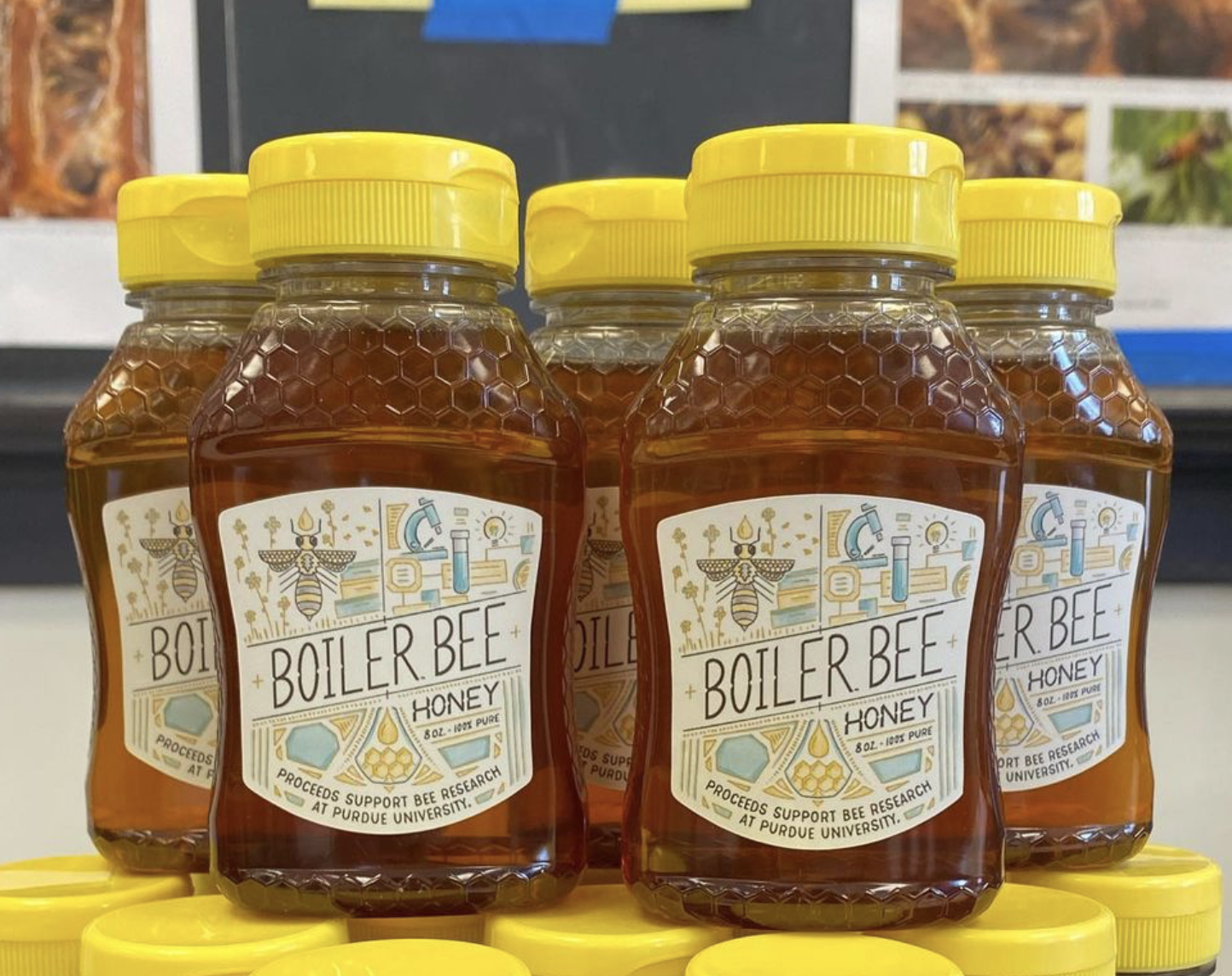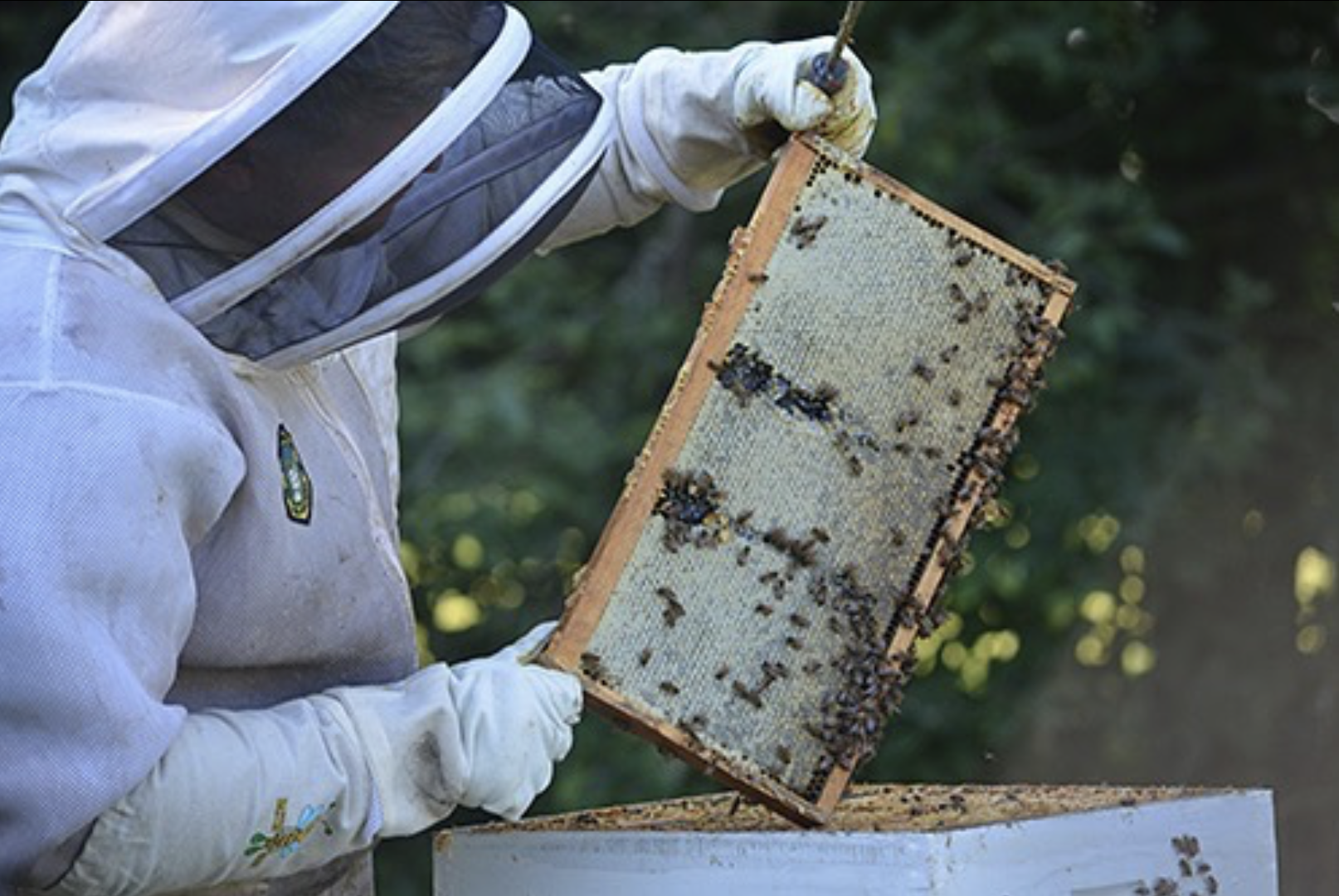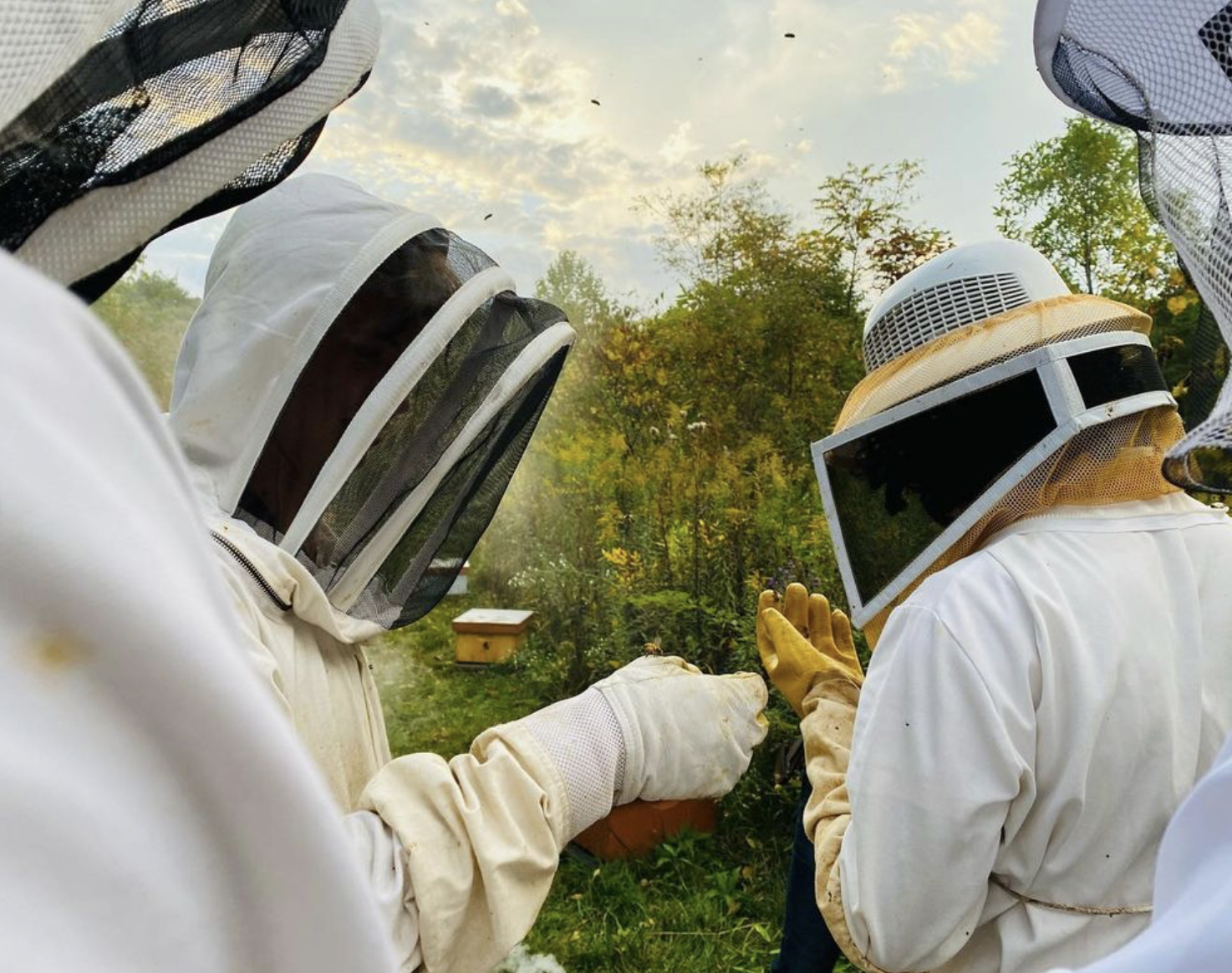Purdue Beekeeping Club is All the Buzz!

It’s a hot summer day and you’re sipping your lemonade on the porch when a honey bee lands on your cup, deciding it is a shareable beverage. Her home must be close, right? Have you considered your thirsty friend might be three miles from her home? These persistent pollinators can fly a three-mile radius around their hive to search for food and honey bees alone are responsible for the pollination of 80% of all flowering plants. One special club at Purdue takes responsibility for the keeping of bees and provides amazing learning opportunities for interested students to get involved.
The Purdue Beekeeping Club engages with students interested in environmental stewardship by learning about bees and beekeeping through exciting events and activities. The Beekeeping Club partners with the Purdue Bee Lab to nurture bees and learn more about bees and the environment.
 “Beekeeping Club does a lot of informational activities because for most of the school year it is too cold to go out and do hands-on experiences and we help with the bottling of the Boiler Bee honey,” says Faith Hartman, president of Purdue Beekeeping Club and a junior studying sustainable food and farming systems.
“Beekeeping Club does a lot of informational activities because for most of the school year it is too cold to go out and do hands-on experiences and we help with the bottling of the Boiler Bee honey,” says Faith Hartman, president of Purdue Beekeeping Club and a junior studying sustainable food and farming systems.
Some of the past informational activities the club has participated in include honey-tasting events, bee reproduction classes, books and beekeeping, how-to-start-a-hive classes and more. Hartman emphasizes that most members of the club have no beekeeping experience- so events like these are a great learning experience for anyone interested.
Bees are essential for the environment.
“Bees do a lot of ecosystem services for the environment,” Hartman emphasizes while reflecting on the importance of the organization. “We rely on honey bees for crop production and we have so many cool native bees who do a lot of work too.”
 Beekeeping is the art of being an observer and caretaker to bees. Honey bees are incredibly intelligent, sentient and self-aware. With this in mind, not much management goes into the hives themselves; rather, beekeepers will keep external pressures off of the hive. Beekeepers check for a healthy and established queen, ward off pests, take out frames to check if the hive is healthy and more. These wellness checks occur approximately once a week.
Beekeeping is the art of being an observer and caretaker to bees. Honey bees are incredibly intelligent, sentient and self-aware. With this in mind, not much management goes into the hives themselves; rather, beekeepers will keep external pressures off of the hive. Beekeepers check for a healthy and established queen, ward off pests, take out frames to check if the hive is healthy and more. These wellness checks occur approximately once a week.
On the horizon for this buzzing club is starting its own hive. As the club was founded in 2021, they initially did not have the resources for their own hive, so they partnered with the Purdue Bee Lab, which works to make beekeeping more data oriented. There are dozens of hives at the Bee Lab and though the Purdue Beekeeping Club doesn’t get much hands-on experience with the hives at the lab, they do help in the packaging of Boiler Bee Honey, which is sold on campus. The new hive that the club is hoping to start will be at the Purdue Student Farm, which provides an excellent opportunity for additional pollination of the vegetables and herbs grown near the Kampen Golf Course and Daniel Turf off of Cherry Lane.
“I had no beekeeping experience prior to joining the club and I was interested in it from a sustainability perspective, this past summer my family got our own hive,” says Hartman. “I have learned so much about bees and bugs. I think our club also makes people a little bit braver- people are scared of bees and getting stung, so it’s so cool seeing our members go out and beekeep and get over that fear.”

Though only founded in 2021, the Purdue Beekeeping Club regularly has 15-20 members who are passionate about everything related to bees and the club is always looking for more members! To join this un-bee-lievable club, prospective members should check out the club's Instagram. Meetings are bi-weekly and are an excellent opportunity to learn and participate in the sustainable and environmentally friendly practice of beekeeping.
Written by: Hannah Williamson, Writing and Communications Intern, Student Life Marketing
 .
.